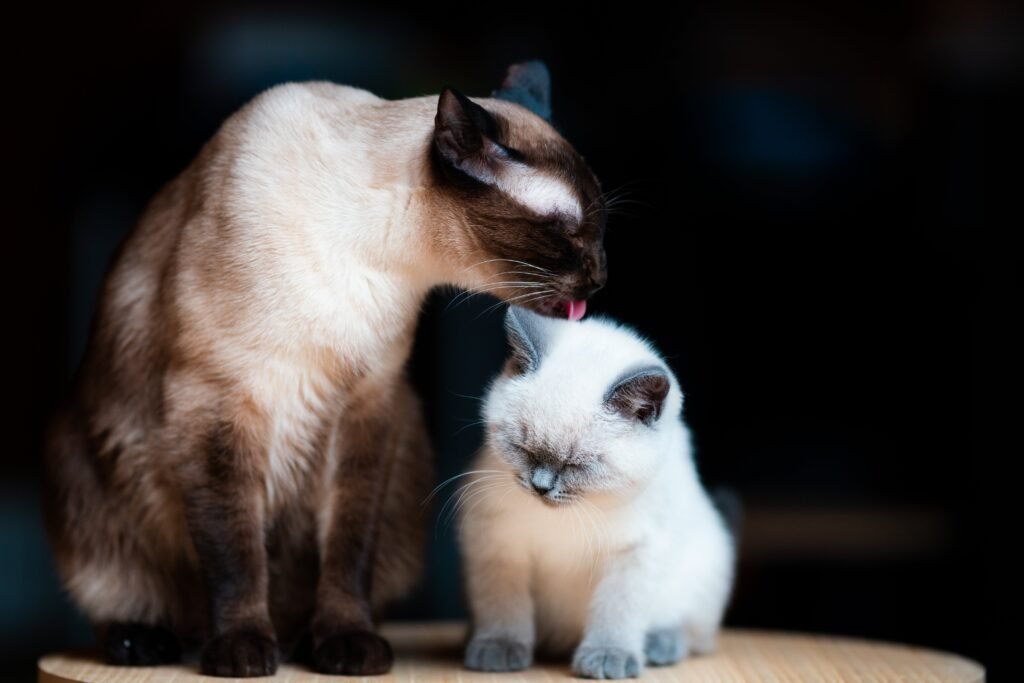Table of Contents
Choosing the perfect cat or dog breed can be one of the most exciting—and daunting—decisions you’ll ever make. After all, you’re selecting a companion who could be with you for the next 10-20 years! So, how do you make sure you’re picking the right one? Let’s break it down in easy, understandable terms.
Understanding Your Lifestyle
Your lifestyle is the foundation for picking the right pet. Are you a couch potato or a marathon runner? Your activity level is crucial in determining whether you need a high-energy dog like a Border Collie or a laid-back cat like a Ragdoll.
-
- Activity Level: If you enjoy long hikes and outdoor adventures, a dog breed that thrives on physical activity, like a Labrador Retriever, could be perfect. On the flip side, if you prefer Netflix binges, a more relaxed pet, such as a Bulldog or a Persian cat, might suit you better.
-
- Home Environment: Do you live in a cozy apartment or a sprawling house? Larger, more energetic dogs might feel cramped in an apartment, whereas smaller dogs or cats, like a French Bulldog or a British Shorthair, can be quite content in a smaller space.
-
- Time Commitment: How much time do you have to devote to your pet? Some breeds, like Huskies or Siamese cats, demand a lot of attention and playtime. If your schedule is packed, consider a breed known for independence, such as a Basset Hound or a Russian Blue cat.
Considering Family Dynamics
Your family situation plays a big role in choosing the right pet.
-
- Pets and Children: If you have kids, you’ll want a breed known for being patient and gentle. Golden Retrievers and Beagles are often great with children, while cats like the Maine Coon are known for their tolerance.
-
- Pets and Other Animals: Already have pets? You’ll need to choose a breed that gets along well with others. For example, dogs like the Cavalier King Charles Spaniel are typically friendly with other animals, while introducing a new cat to a dog-friendly breed like a Labrador can be easier than with more territorial breeds.
Assessing Your Space
Space is another critical factor. Not every breed will thrive in every environment.
-
- Small Spaces: If you live in an apartment, consider small dog breeds like Dachshunds or cats that are less active, such as the Exotic Shorthair.
-
- Large Homes: Have a big yard? Breeds like German Shepherds or Greyhounds might appreciate the extra room to roam.
-
- Exercise Needs: All pets need exercise, but the amount can vary significantly. High-energy dogs like Jack Russell Terriers need lots of playtime, while cats, particularly indoor ones, often require less active engagement.
Temperament and Personality
The personality of a pet can vary widely from breed to breed.
-
- Laid-Back vs. Energetic: Some pets are calm and easygoing, like the Basset Hound or the Ragdoll cat. Others, like the Dalmatian or Bengal cat, are bursting with energy and need an owner who can keep up.
-
- Independent vs. Needy: If you need a pet that can handle being alone for a while, consider independent breeds like the Shiba Inu or the Scottish Fold cat. If you want a constant companion, breeds like Pugs or Sphynx cats might be more up your alley.
-
- Social vs. Solitary: Some pets love being the center of attention, like the outgoing Boxer or the sociable Abyssinian cat. Others prefer to keep to themselves, such as the reserved Basenji or the aloof Norwegian Forest cat.
Grooming and Maintenance
Grooming is a significant part of pet ownership that shouldn’t be overlooked.
-
- Low-Maintenance Breeds: If you’re short on time, opt for breeds with lower grooming needs, like the Beagle or the American Shorthair cat.
-
- High-Maintenance Breeds: Some breeds require regular grooming, such as Poodles or long-haired cats like the Persian. This can be a relaxing routine for some owners, but a hassle for others.
-
- Hypoallergenic Options: If allergies are a concern, consider hypoallergenic breeds like the Poodle or the Sphynx cat. These breeds are less likely to trigger allergies but still require regular care.
Health and Lifespan
Health considerations are vital when selecting a breed.
-
- Common Health Issues: Some breeds are prone to specific health problems. For example, Bulldogs can suffer from breathing issues, while Persian cats often have eye problems. It’s important to be aware of these potential issues before making a decision.
-
- Lifespan: Smaller breeds often live longer than larger ones. Chihuahuas, for instance, can live up to 18 years, while larger breeds like Great Danes may only live for around 7-10 years. Cats generally have long lifespans, with many living into their teens or even early twenties.
-
- Veterinary Care: Some breeds require more frequent veterinary visits due to their predisposition to certain conditions. Be prepared for potential medical costs and the time commitment for a breed with special health needs.
Costs of Owning a Pet
Owning a pet is a financial commitment, so it’s important to consider the costs.
-
- Upfront Costs: These include adoption or purchase fees, initial vaccinations, and the cost of spaying or neutering.
-
- Ongoing Costs: These include food, grooming, toys, and routine veterinary care. Breeds with special dietary needs or high grooming requirements can be more expensive to care for.
-
- Emergency Expenses: Unexpected health issues can arise, and having pet insurance or a savings plan for emergencies is wise. Breeds prone to health problems might increase these costs.
Training and Behavior
Training is crucial, especially for dogs, though cats benefit from it too.
-
- Trainability: Some breeds are easier to train than others. For example, Border Collies and Labrador Retrievers are known for their intelligence and trainability. On the other hand, cats like the Burmese can also be taught tricks, though with less consistency than dogs.
-
- Behavioral Traits: Every breed has unique behavioral characteristics. Terriers, for example, can be quite stubborn, while herding breeds may try to herd everything, including children!
-
- Socialization: Proper socialization from a young age is essential for well-behaved pets. Breeds that are naturally wary of strangers, like the Akita, will need more socialization to become well-rounded companions.
Breeds for Specific Needs
Different breeds serve different purposes. Whether you’re a first-time pet owner or have specific needs, there’s a breed for you.
-
- First-Time Owners: Consider easy-going breeds like the Cavalier King Charles Spaniel or the Ragdoll cat.
-
- Active Lifestyles: For those who love outdoor activities, breeds like the Australian Shepherd or the Siamese cat could be perfect companions.
-
- Quiet Homes: Breeds like the Shih Tzu or the Russian Blue cat thrive in calm, quiet environments.
-
- Good with Kids: Families with children should consider breeds known for their patience and gentleness, like the Labrador Retriever or the Birman cat.
-
- Breeds that Do Well Alone: If you’re away from home often, consider independent breeds like the Basenji or the British Shorthair cat.
Adopting vs. Buying
Deciding whether to adopt or buy is a big decision.
-
- Benefits of Adoption: Adopting a pet from a shelter not only saves a life but often costs less than buying from a breeder. Plus, many adopted pets come vaccinated and spayed or neutered.
-
- Buying from a Breeder: If you’re set on a specific breed, buying from a reputable breeder is an option. Ensure the breeder is ethical, and avoid puppy mills or irresponsible breeders.
-
- Finding a Reputable Source: Whether adopting or buying, do your research. Look for reviews, ask for references, and ensure the animals are well-cared for.
Matching Personality with Pet
Your personality plays a big role in choosing the right pet.
-
- Your Personality: Are you calm and quiet, or energetic and social? Choose a pet that matches or complements your temperament.
-
- Pet’s Personality: A pet’s temperament can greatly affect your relationship. A misalignment here can lead to frustration for both you and your pet.
Real-Life Scenarios
Sometimes, hearing about others’ experiences can be enlightening.
-
- Success Stories: Owners who’ve found their perfect match often share stories of joy and companionship. For example, a retired couple finding the perfect lap dog in a Maltese, or a young family adopting a playful cat that fits right in.
-
- Learning from Mistakes: On the other hand, some owners realize their choice wasn’t ideal—like choosing a high-energy dog for a small apartment—and have valuable lessons to share.
Final Considerations
Before making your decision, consider these last points.
-
- Long-Term Commitment: Remember, a pet is a long-term commitment, often lasting over a decade. Make sure you’re ready for the responsibility.
-
- Do Your Research: Take your time to research breeds thoroughly. Visit breeders or shelters, talk to other pet owners, and make an informed decision.
-
- Be Realistic: Be honest about what you can handle in terms of time, space, and finances. It’s better to choose a breed that fits your life than to struggle with a mismatch.
Conclusion
Choosing the perfect cat or dog breed is a big decision that requires careful thought. By considering your lifestyle, family dynamics, space, and the breed’s personality and needs, you can find a furry friend that will bring joy and companionship for years to come. Take your time, do your research, and choose wisely—you and your new pet will both be happier for it.
FAQs
What is the best dog breed for apartment living?
Small, low-energy breeds like the French Bulldog or Shih Tzu are great for apartments.
Are there cat breeds that don’t shed much?
Yes, breeds like the Sphynx or the Russian Blue are known for minimal shedding.
How can I find out if a breed is right for my family?
Research, talk to breeders or shelter workers, and consider your family’s lifestyle and needs.
What should I consider if I have allergies?
Look into hypoallergenic breeds like Poodles or Siberian cats, and consider regular grooming and cleaning.
Is it better to adopt or buy a pet?
Both have pros and cons. Adoption saves lives and is often cheaper, while buying from a reputable breeder can offer more breed-specific choices.


